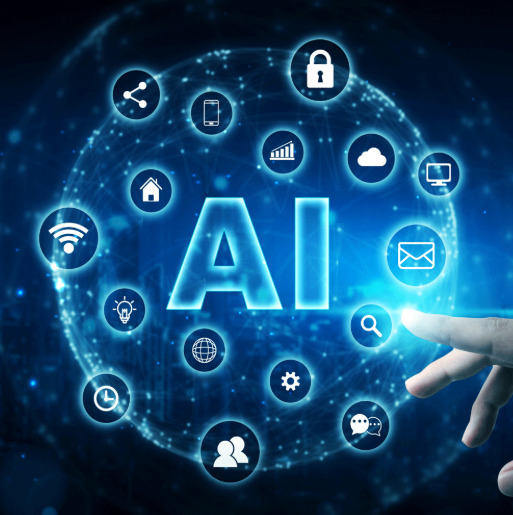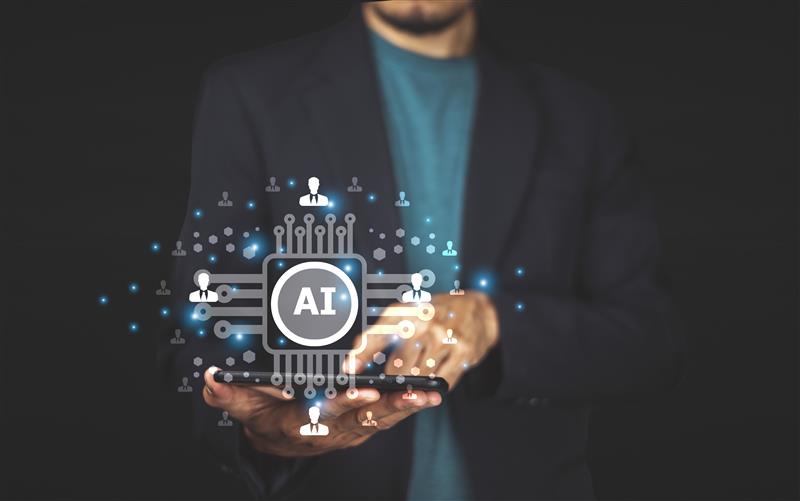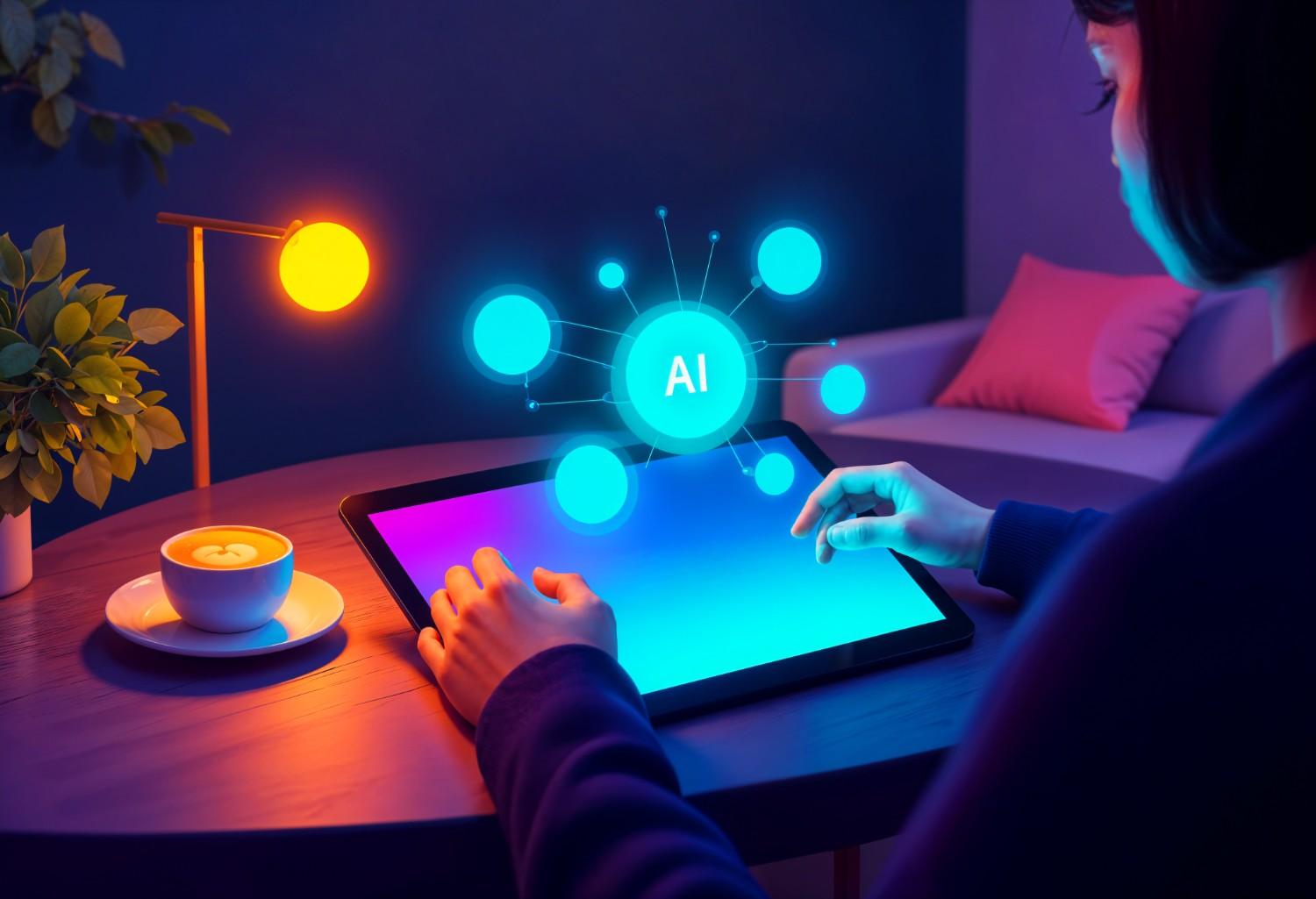Developing AI Applications with MCP: The Standardizing Force Behind Agentic AI

The field of artificial intelligence is undergoing a seismic change. For years, Large Language Models (LLMs) were limited to being "glorified text predictors"—brilliant at discussion, summarization, and code production but completely unable to take meaningful action in the actual world. They could compose an email, but they couldn't send it.
This intrinsic constraint is exactly what the Model Context Protocol (MCP), or simply MCP, was designed to address.
Building AI applications using MCP is quickly becoming the industry standard for developing genuinely autonomous, agentic AI processes. The open-source communication layer provides AI agents with a reliable, standardized means to communicate with external tools, systems, and private data, transforming them from isolated conversational interfaces to powerful, active extensions of your organization.
For developers, MCP streamlines the formerly cumbersome process of tool-calling. For corporate executives, it opens up the possibility of smart, completely autonomous AI assistants capable of generating unparalleled productivity. This deep dive will look at the Model Context Protocol's design, advantages, and strategic relevance, revealing why it is unquestionably the future of AI research.
1. Understanding the Model Context Protocol (MCP) for AI agents.

Before MCP, combining an LLM with a real-world capability (like retrieving a sales record from a CRM or sending a Slack message) was a disjointed, custom-coded headache. Every LLM and tool needed a unique integration, resulting in the complicated N x M challenge (N models x M tools = N*M special integrations).
The Model Context Protocol (MCP) is an open standard that specifies a consistent method for an AI system (the client) to identify, characterize, and execute capabilities offered by other systems (the server). It serves as the "universal translator" or "USB-C" for AI, providing a single, standardized interface for standardizing LLM integration.
1.1. Core Components of the MCP Architecture.
Understanding the architecture is critical for effectively implementing AI applications using MCP.
- MCP Host (The AI Application): The application that contains the LLM/AI agent (for example, an AI-enhanced IDE, a bespoke chatbot, or a business process automation tool). It begins the request.
- MCP Client: A component of the Host that handles the connection, communication, and translation of the LLM's internal logic to the MCP Protocol's message format.
- MCP Server (The Adapter): This is a lightweight software that wraps over an external tool or data source. The server is responsible for the following:
- Tool Discovery: Providing the client with a manifest of accessible functions/tools.
- Execution: entails translating the standardized MCP request into the precise API calls or directives that the external tool comprehends.
- Result Formatting: Converting the tool's raw output into a neat, formatted answer that the LLM can readily ingest.
- Transport Layer: The communication channel, which is commonly provided via STDIO (for local, secure connections) or HTTP/Server-Sent Events (SSE) for distant connections.
This framework enables the LLM to simply specify its goal ("Get today's sales figures") while the standardized protocol handles the complicated, real-world implementation, thus allowing AI tool identification and execution.
2. The Strategic Advantage: Why is MCP the Future of AI Development?

The change to Model Context Protocol (MCP) is more than just a technical update; it's a strategic shift that overcomes the most critical barriers to corporate AI adoption.
2.1. Resolving the Vendor Lock-in and NxM Issue
One of the most common concerns for firms adopting cloud-based AI is vendor lock-in. If your proprietary agents are hard-coded to one cloud provider's function-calling mechanism, moving models or using a better-performing model from a competitor turns into a major re-engineering exercise.
MCP, being vendor-neutral and model-agnostic, separates the AI model from the execution layer. An application employing an MCP client may potentially go from a Claude to a Gemini model while the underlying MCP Servers (such as the SalesForce adapter and Jira connection) stay unaltered. This significantly speeds feature development and offers genuine freedom of choice for your core LLM technology—an important consideration for organizations focusing on Secure AI system integration.
2.2. Enabling True Agentic AI Workflows
MCP's most significant value is the ability to support complex Agentic AI processes. An AI Agent is a system capable of pursuing complicated objectives on its own, which often necessitates several, conditional actions.
Before MCP, an agent wishing to "book a flight" would need a custom-built, fragile connection for a single flight API.
With MCP, the agent may communicate with a typical MCP Server for Travel. The agent runs the "search_flights" tool, the server handles the GDS API request, and the agent determines the next step (e.g., "select_seat," "make_payment").
This chaining of tools, resources, and cues enables AI systems to ultimately do the real-world AI tasks that companies desire: processing bills, orchestrating complicated supply chain operations, or handling customer service cases end-to-end. This is the core of MCP's future AI development.
3. Technical Analysis: MCP vs. Traditional Function Calling

To properly grasp MCP's supremacy, developers must first understand how it differs from its previous technology, native function calling (for example, OpenAI's function calling).
- Feature Standardization for Traditional Function Calling using Model Context Protocol (MCP). Proprietary to the LLM/vendor. The protocol is open source and vendor-neutral.
- Tool Definition JSON schema and function descriptions must be proprietary. Standardized, reusable format for any MCP-compatible LLM.
- Discovery Tools must be pre-registered using the model's API call. The ListToolsRequest enables automatic, runtime tool discovery.
- Context access is generally limited to function execution. Comprehensive: supports tools, resources (data/files), and prompts in a consistent manner.
- Communication API calls are stateless. It accepts both stateless (remote) and stateful (local via STDIO) connections.
- Security/Privacy A strong dependence on cloud service security. Supports local servers, allowing for highly secure and low-latency interaction with local data and system activities.
MCP transforms basic function execution into a comprehensive Standardizing LLM Integration framework for safely and reliably connecting AI to external data and systems.
3.1. The Essential Function of MCP Servers
The Model Context Protocol Server is the core component that allows agentic AI to scale. It is more than simply an API wrapper; it is a smart gateway.
- Data Resources: An MCP server may expose a database or file system, enabling the LLM to query data in a systematic, controlled way (for example, fetching certain documents for RAG). This is critical for avoiding LLM hallucinations by basing answers on validated, external facts.
- Prompt Management: Servers may offer a library of standardized prompts or prompt templates, assuring AI output uniformity throughout an enterprise and enabling reusable prompt engineering.
- Decoupled Development: Development teams may create and secure MCP Servers for internal tools separately from the AI team, enabling them to iterate more quickly. This flexibility is critical for scaling up AI applications with MCP in a big business setting.
4. Implementation Pathways and Strategic Applications.

MCP for AI Agents has practical applications in practically every business industry, providing concrete ROI and a true competitive advantage.
4.1. Enterprise Knowledge and Code Assistance.
- Use Case: An AI agent is entrusted with resolving an issue in an internal application.
- MCP Solution: The agent connects to the repository's files via a GitHub MCP Server and searches internal documentation using a Confluence MCP Server. It runs the 'list_files' and'read_resource' tools, followed by a Semantic Kernel plugin that uses the MCP client to build the updated code, all of which are based on current, proprietary context.
- Business Impact: Significantly lowers developer debugging time and speeds up feature rollout.
4.2. End-to-End Business Process Automation Use Case: Automatically process new client orders received via email.
- Use Case: Automatically process a new customer order that comes in via email.
- MCP Solution: An AI agent is hosted in an Azure Function or Cloud Run container (Internal Link 2: [Cloud-Native AI Solutions] ). It uses an Email MCP Server to read the order details, a CRM MCP Server (e.g., Salesforce/HubSpot adapter) to check the customer's status, and a Financial MCP Server to generate an invoice. The agent performs all four distinct actions without human intervention.
- Business Impact: Eliminates manual data entry, speeds up the order-to-cash cycle, and reduces human error.
4.3. Data sovereignty and security.
MCP's support for local and private transportation is a game changer in businesses with tight data residency rules (banking, healthcare, government). Running an MCP Server locally or inside a private business network ensures that sensitive data never leaves the boundary, even if the LLM is hosted elsewhere. This permits the use of powerful public LLMs on very sensitive data while adhering to strict security and regulatory standards.
Conclusion: Securing the Future of AI Development
The Model Context Protocol is not an optional feature; it is the necessary basis for the next generation of AI-powered business transformation. MCP converts AI models from great thinkers to powerful doers by offering a standardized, vendor-neutral, and resilient framework for integrating LLM with external data and tools.
For developers, it means cleaner code, quicker iteration, and the opportunity to create highly powerful AI agents. For business executives, it means increased efficiency, unprecedented automation, and a clear route to adopting AI apps that perform real-world AI tasks and produce demonstrable ROI.
The future of AI is agentic, with MCP as the driving protocol.
Next Step: Transform Your AI Strategy.
Are you ready to quit developing fragile, one-time integrations and begin using the potential of fully agentic AI with the Model Context Protocol? Our professional AI architects and full-stack developers specialize in creating, securing, and delivering scalable, production-ready AI systems based on the MCP standard.
Contact us now to learn more about how MCP can help you create AI apps that will serve as the foundation of your corporate innovation strategy.
